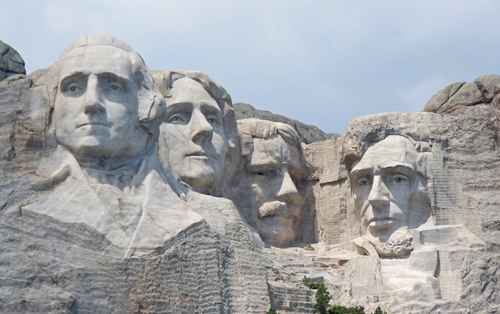As we celebrate our nation's birthday, I thought I'd once again remind those few of you who, instead of having picnics, are reading blogs, how the U.S. came to be, and how innovation has been baked into its DNA since Day 1.
First, our nation began as a huge experiment. Can a country truly govern itself? Few had, and those examples (notably Athens) were small and long ago. Could a sprawling nation elect its own leaders, write its own laws, solve its own problems? It was an extraordinary experiment, with the whole world (especially Europe) as a control group. Notably, two foreign veterans of the U.S. experiment, the Marquis de la Fayette and Tadeusz Kosciuszko, went back to their home countries (France and Poland) to try to establish similar forms of government. Both failed miserably, as did most other countries throughout the 19th Century and into the 20th.
Why did the American experiment succeed? There are many reasons, but I'll put forward my own. It cannot be irrelevant that the leaders of the American Revolution were innovators, and not just in government. Benjamin Franklin, with his stove, bifocals, lightning rod, and other inventions, comes immediately to mind. Immediately after the U.S. Constitution was ratified, his first order of business was to establish a patent office, to encourage and protect innovators in every field.
Thomas Jefferson was also an innovator and scientist, of course. If you visit his home in Monticello, you can't help but wonder at his innovative mind. If you visit Mount Vernon, you learn that George Washington, in between rescuing and then leading the country, was also an agricultural innovator.
Our founders disagreed on a great deal, and their politics was as ferocious and divided as our politics today. Yet they deeply agreed on the importance of innovation and evidence in improving the agricultural and commercial success of a new nation.
What would they think about evidence-based reform in education? All were passionate advocates of education; Jefferson, Franklin, and Washington all helped to found great universities, as did many others. As early as 1862, the Homestead Act set aside funding in new territories for schools and land-grant universities. Clearly, our founders valued education and they valued innovation and evidence.
What would our founders say if they came back today and found that our far larger, richer, and more stable country was spending little of its wealth on educational research and innovation, and that the Congress they founded was proposing to substantially cut the little that is spent?
Have a great holiday. When everyone gets back to work, I hope we'll all redouble our efforts to make the education we provide our students second to none. It's our patriotic duty.

